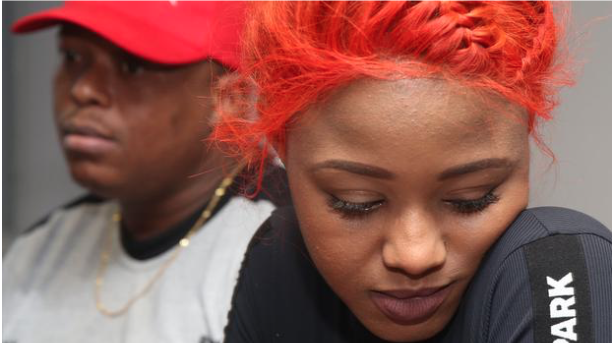
In South Africa, one in five women experience physical violence, and one in 17 suffer sexual violence by a partner (Statistics SA). Moreover, SA has some of the highest rates of gender-based violence and femicide in the world, the Sonke Gender Justice website reveals. The femicide rate is reportedly almost five times the global average.
It’s important as a society to understand the complex dynamics of gender-based violence and rather than shame a survivor for speaking out, we should create an environment, which believes the survivor when they allege abuse, and encourages and facilitates reporting of GBV.
Relationship expert and author of Embracing No, Paula Quinsee explains what you can do to help someone who’s being abused or if you’re the victim.
READ MORE: Five telltale signs your relationship is over
How can you help if someone you know is being abused?
It depends on the type of relationship you have with the person. Are you able to sit down and have an honest conversation about what you’re observing as an outsider, and how it’s impacting this person’s wellbeing? If this person’s too scared to leave, or they don’t have the courage to leave, you can help them by removing them from the environment and getting them to a place of safety like a shelter or home. You can also look to get them professional help to deal with what they’re going through.
However, it’s difficult to take someone out of that environment if they aren’t ready to walk away. It’s very similar to dealing with a drug addict, because they keep going back for more until there’s some defining moment where they get the strength or the courage to walk away. Hopefully, it’s not a life-changing moment. It’s really all about getting them to a point where they feel strong enough to stand up for themselves and/or leave the situation.
So as an outsider, you can offer support and encouragement, but at the same time, you need to have boundaries so you don’t get sucked into the whole situation, because it’s going to have a negative effect on you.
READ MORE: Are you alone or lonely?
Steps to take if you are being abused…
· Confide in someone you trust, in a safe environment. A professional counsellor is generally best, as you need someone non-judgemental, who will not react with shock or tell you to move on.
· Join a support group. You can keep retelling your story in safety when friends and family have wearied of it.
Practice body therapy. “Abuse in general disconnects you from your body, mind and spiritual self,” says Durban psychologist Dr Akashni Maharaj. “Yoga or body therapy (body talk) can help your body release pent-up anger and energy, restore balance to an injured body, and help you reconnect with your physical and spiritual self.”?Try meditation. Done daily, it helps you reconnect yourself and aligns you with a higher purpose.
· Get in touch with nature. “It’s a great way to find yourself and assists in the healing process.’”
· Remind yourself it’s not your fault. Lots of self-blame goes with abuse.
· Become your own best friend. “Cultivate self-care and self-compassion. Make yourself the beneficiary of whatever goodness you offer to others,” says Maharaj.
· Call: POWA (011 642 4345), LifeLine (0861 322 322), Famsa (031 202 8987), Family Life Centre (011 788 4784), SADAG (0800 21 22 23)










